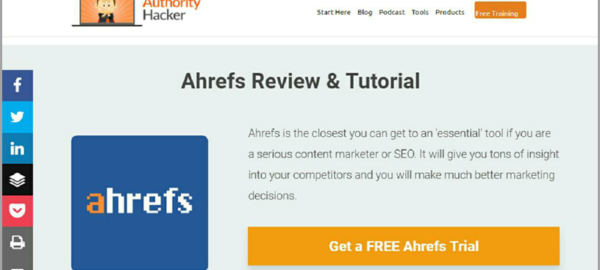— June 20, 2018

The ultimate internet marketing dream – sit by the beach somewhere on a remote island sipping a margarita while wads of cash are credited to your bank account, aka passive income.
It’s a beautiful dream, but I’m sure you’ve finally figured out that passive income isn’t truly passive. That’s why I’m writing this, to help you with one form of “passive” income today – affiliate marketing. Because these days, you can still earn money from affiliate marketing, but the rules have changed.
This post will save you hours, days, and months of frustration; show you the right path, and help you make more money via affiliate marketing in 2018. This is what you need to do to succeed.
1. Choose the right product(s)
For most affiliate marketers, this is the hardest part, but it’s an important first step. Generally, you can promote physical products, software, services, or courses. And note that those three categories are quite broad.
For example, physical products can be books, clothes, or fitness equipment. You’re only limited by your own imagination. The question is, how can you choose the right product(s)?
To answer this question, you need to find out what your audience’s goals are or what they’re trying to accomplish. That way, you can recommend products that can help them accomplish their goals. The simplest way to decide what your audience wants to achieve is by asking them. You can do this in one or all of the following ways – notice how it’s eerily similar to deciding topics for your content:
- Ask readers who have subscribed to your email list
- Discover their goals by creating a survey
- Read some feedback on current posts through emails or comments
- Visit forums they’re active on
Remember that your final goal isn’t to choose products that offer the most commission, but products that will truly help your audience.
To give you some ideas, consider the following sites in diverse niches doing affiliate marketing. You can visit them later too for inspiration.
Landlordology is a real estate site.
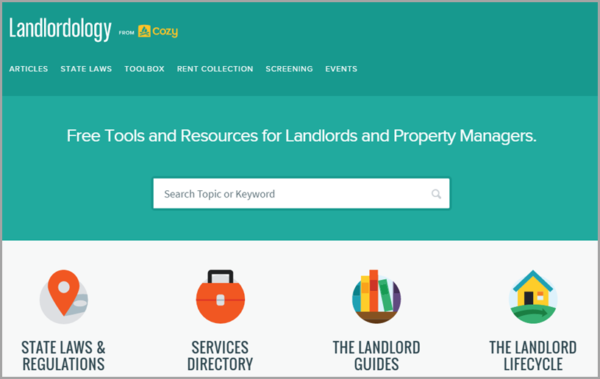
Lucas Hall was inspired by Pat Flynn of Smart Passive Income to start his own “resources page” on his website. He promotes legal services for property owners, repairs and cleaning services, and real estate books.
Julie Fagan runs Peanut Butter Fingers, a site about food, fitness, family, and travel.
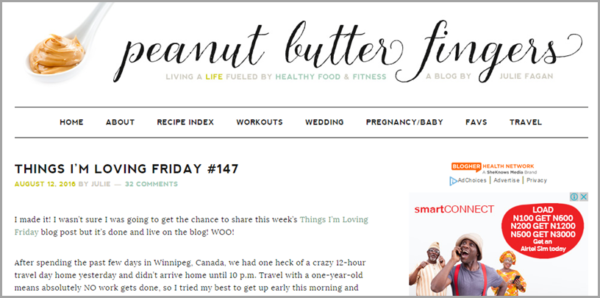
She is largely an Amazon affiliate and promotes handbags, shoes, supplements, fitness books, fitness equipment, soundtracks, etc in her weekly column “Things I’m Loving Friday.” Sometimes, as a certified personal trainer, she writes about a workout routine and includes affiliate links to what she wore – shoes, headbands, tank tops – at the end of the post.
Remember I mentioned choosing products or services that help your audience achieve their goals. That means what your audience needs may not even be products or services in your niche.
For example, Just a Girl and Her Blog is primarily a home decor site, and she makes money by promoting certain products or services as an affiliate.
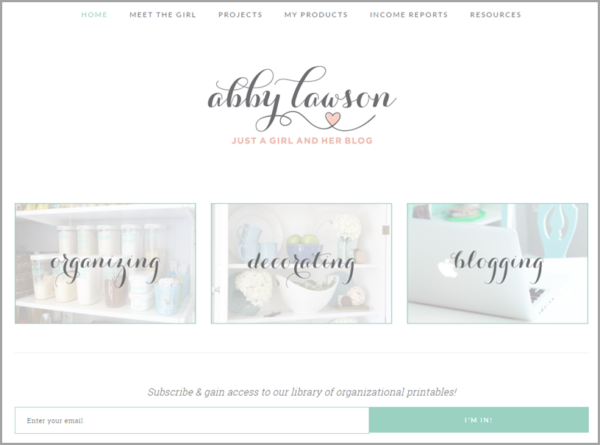
You’d be forgiven for thinking that she’s an affiliate for only home improvement services, home security systems, and the likes. Instead, prior to stopping her monthly income reports, her biggest affiliate revenue often came from Bluehost, a web hosting provider.
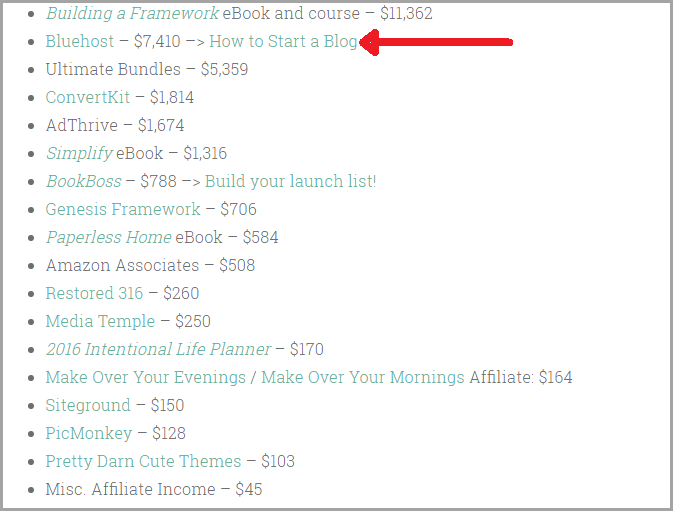
Just a Girl and Her Blog income report for June 2016
That emphasizes how important it is to give your audience what they want and not what you think they want or products and services that will bring you the highest commissions. And it means your highest revenue-generating affiliate product or service may not be related to your niche. Choose the right product.
2. Create and promote valuable content
If you’ve used Google to do a search for reviews of products or services for a while, I’m sure you encountered reviews that were written solely for the affiliate commission.
Typically, they’re reviews praising the product and listing, with little commentary, the features of the product you can easily find on the product’s official page. Such reviews may have worked ten years ago, but they’re old school now.
To find major success with promoting affiliate offers, you need to write helpful product reviews. Here’s what I mean:
Show how you use the product to achieve your goals
Here you’re not just saying “hey, this product is great, purchase it with my link,” but you’re saying “this product is great and here’s how I use it to achieve x, y, and z.”
This bonds and builds trust with your audience. Because they’ll see you truly care about them and their problems and you’re not just after the affiliate commission. Here’s an example of such review by Authority Hacker.
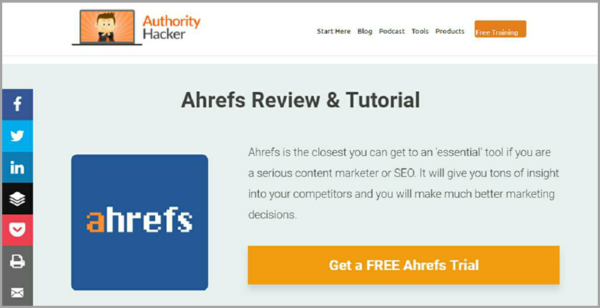
If you read through you’ll see in depth, how they use the tool – Ahrefs – to achieve their goals for their blog(s). Also, they mention what they don’t like about the product upfront, and even though it’s not a lot, it adds credibility to the review since there’s hardly a perfect product. Embedding a video tutorial also makes it easier for others who may prefer to consume audio-visual content.
The review is so successful that it ranks at #1 for “Ahrefs review.”
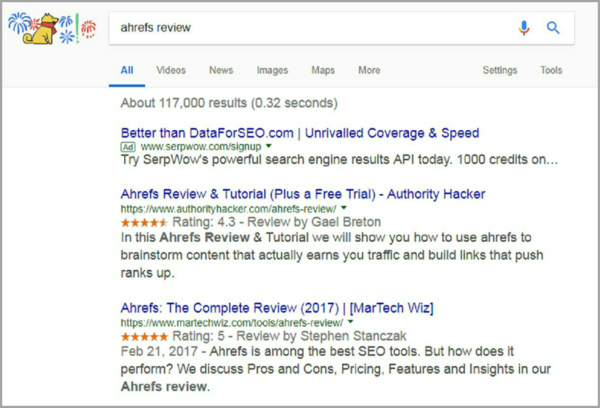
Aim for that level of content and better.
Include a successful case study
If you haven’t used the product you’re recommending, you may opt for this. Social proof is an important component of copywriting, so you’re likely familiar with it.
However, if you’re partnering with an influencer as an affiliate of their product, you may not need to try it before recommending it to your audience. Mine customer testimonials or case studies on the product’s page for one, two, or more stories you can use to promote the product as legit. Plus, when writing a product review showing how you use a product, you can add case studies or testimonials of other successful users of the product who are not you.
Before you can partner with an influencer, build a relationship with them, and grow your email list to a decent number of subscribers, say 5,000 to 10,000 contacts at least.
While sending out emails promoting affiliate offers to your list, it’s good practice to A/B test them. After you’ve chosen what part you want to test – subject line, pre-header, call-to-action – create two separate versions. To be successful, iContact recommends:
“Send one version to 10% of your list, and send the other to another 10%. Then analyze the results. Hit the remaining 80% with the more successful email.”
Split testing will ensure that you’ll discover which content resonates well with your audience for promoting the affiliate offer. Sometimes you may discover that the content (email in this case) without social proof in form of a case study performs better than one with the case study because your audience trusts you not to try to make a quick buck from them by recommending a poor product.
The importance of creating epic content and building an email list rears its ugly head again. There’s no escaping these, even as an affiliate marketer. Don’t skimp on them.
3. Offer additional incentives
Sometimes you may create the perfect content and send out the perfect emails. But adding incentives to your affiliate offers can increase your conversion rate (this is subject to A/B split testing too).
Incentives can include any of the following:
- A discount: You can readily see this with marketers who promote a service like web hosting for example.
- A free trial: This works especially when the product’s creators do not normally give free trials. For example, a 7-day trial with Ahrefs costs $ 7 but purchasing with Authority Hacker’s affiliate link gives you a free trial.
- Bonus material from you: If you have any products of your own, you may give a discount on them, or it’s possible you can give it out for free for anyone who purchases the product you recommend. Here’s an example I saw in my email some days ago from Bryan Kreuzberger.
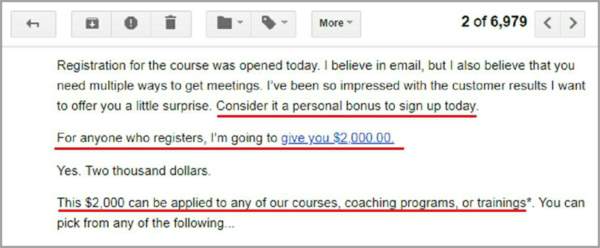
He gives a whopping $ 2,000 applied to any of his courses or training programs as an incentive to sign up for the affiliate offer he’s promoting. Your product doesn’t need to be a $ 2,000 product, but it sure needs to be irresistible to your audience.
If you want to create courses like Bryan did, you can use popular tools like Udemy or Kajabi to fasten the process. Bonus materials don’t all have to be courses, but they’re the most popular because they’re often high-value materials.
- Offer free help: If it’s a product that needs setup, you may offer to help with the setup for free for people having trouble with it, as long as they purchase through your affiliate link. This is an example I found on WPBeginner.

They offer to help you set up your blog for free if you can’t do it yourself in thirty minutes.
For added effect, I’ve seen incentives limited to the first five, ten, or twenty people. These are just to give you ideas.
Affiliate offers are here to stay
Many processes and techniques have evolved over the years in the internet marketing industry. Some changes have been so massive that if you don’t move along with the times, you’ll become obsolete, unheard and unseen.
However, one of man’s greatest abilities is adapting to changing circumstances. The affiliate marketing space has evolved, even more so in 2018. Apply these tips and you’ll have a great year in your affiliate marketing journey.
Digital & Social Articles on Business 2 Community
(54)
Report Post